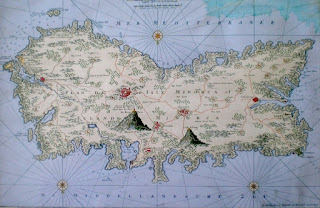Book of the Month: George Cleghorn’s Observations on the Epidemical Diseases in Minorca from the Year 1744 to 1749
George Cleghorn, who was one of the most influential figures in 18th century Irish medicine, was born in Scotland in 1716. His intelligence was noted early in his life and, at the age of 12, he was sent to Edinburgh to study Latin, French and Greek. At the age of 15, he started to study medicine under the tuition of Alexander Monro, primus, the outstanding Scottish physician of the day.
In 1736, Cleghorn was appointed Surgeon to the 22nd Regiment of Foot, then stationed on the Mediterranean island of Minorca. He was to spend 13 years on Minorca and spent a great deal of his time studying the diseases prevalent on the island. This led to him writing his book, Observations on the Epidemical Diseases in Minorca from the Year 1744 to 1749, which is now recognised as a classic work on epidemic diseases. Cleghorn begins with a general account of the inhabitants, climate and natural history of the island and then goes on to describe the diseases suffered by the natives and by the British troops, including the first description of infectious hepatitis. He also records the weather conditions for each day.
 |
| 18th Century map of Minorca |
In 1749, Cleghorn's regiment was posted to Ireland. He went briefly to England to oversee the publication of his book in 1751. It was to prove a considerable success, going through five English editions and being translated into German. The College Library holds copies of all of these. While in London, Cleghorn studied anatomy under William Hunter. He returned to Ireland and was appointed anatomist to the School of Physic at Trinity College, Dublin, in 1753 and, subsequently, became Professor of Anatomy. He is credited with laying the foundations for the tradition of excellent anatomy teaching in TCD.
He was awarded an Honorary MD by Trinity College in 1768 and, in 1784, he was elected an Honorary Fellow of the College of Physicians in Ireland. He built up a lucrative medical practice in Dublin which enabled him to purchase several estates in Co. Meath. He retired in 1786 and died at his country home in December 1799.
Robert Mills
RCPI Librarian